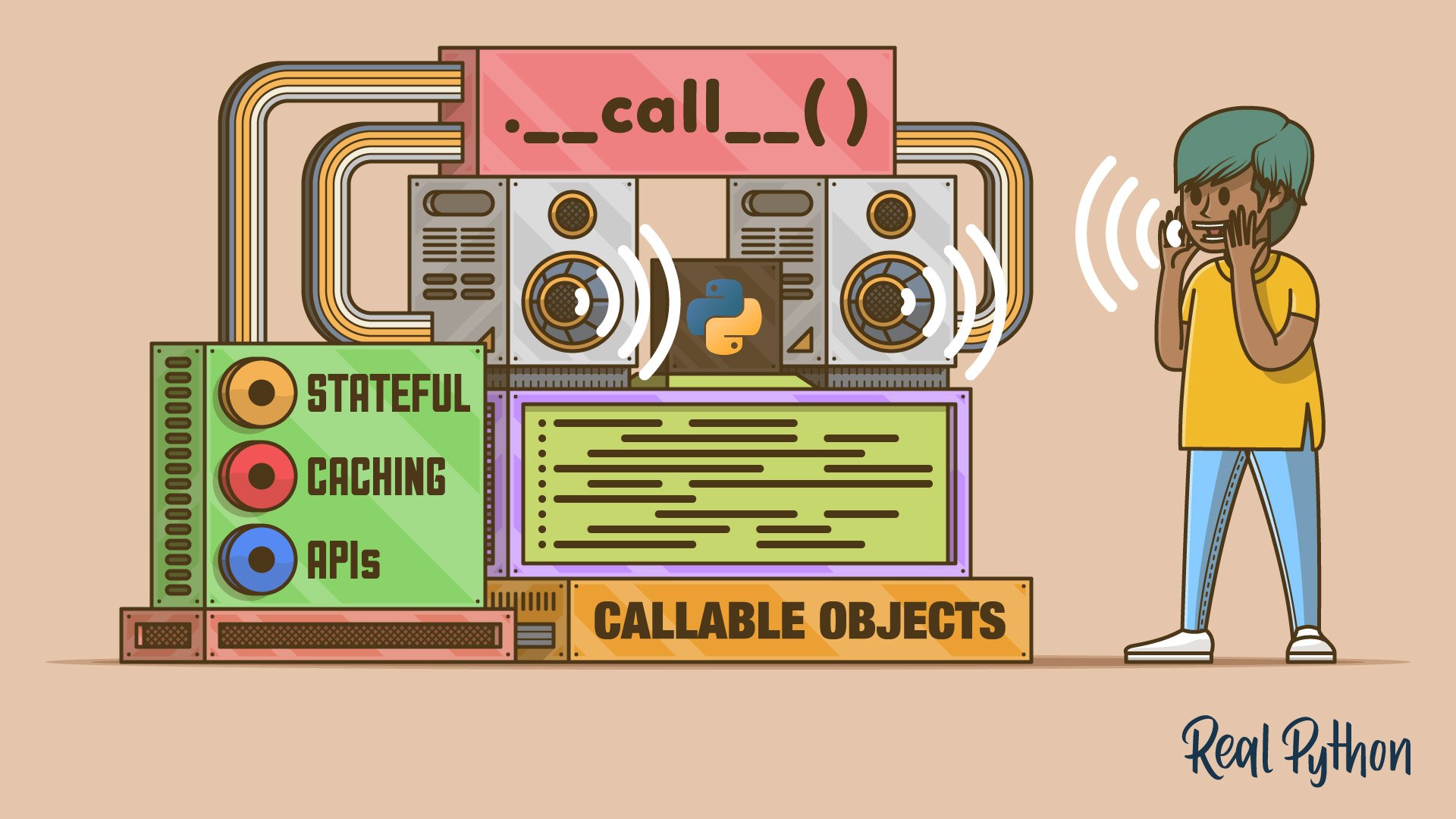callable
In Python, a callable is any object that you can call like a function. This means you can use parentheses () to invoke the object and possibly pass arguments to it.
Functions and methods are callable. However, other objects can be made callable by implementing the .__call__() special method. This method allows you to create objects that behave like functions.
You can check if an object is callable using the built-in callable() function, which returns True if the object can be called and False otherwise.
Understanding the concept of callables is essential when working with higher-order functions, decorators, and any Python feature that requires passing around functions or function-like objects.
Example
Here’s an example demonstrating a class with the .__call__() method, making its instances callable:
adder.py
class Adder:
def __init__(self):
self.value = 0
def __call__(self, value):
self.value += value
return self.value
# Usage
adder = Adder()
adder(10) # Output: 10
adder(10) # Output: 20
adder(10) # Output: 30
In this example, Adder is a class whose instances are callable. They add any passed value to the .value attribute.
Related Resources
Tutorial
Python's .__call__() Method: Creating Callable Instances
In this tutorial, you'll learn what a callable is in Python and how to create callable instances using the .__call__() special method in your custom classes. You'll also code several examples of practical use cases for callable instances in Python.
For additional information on related topics, take a look at the following resources:

